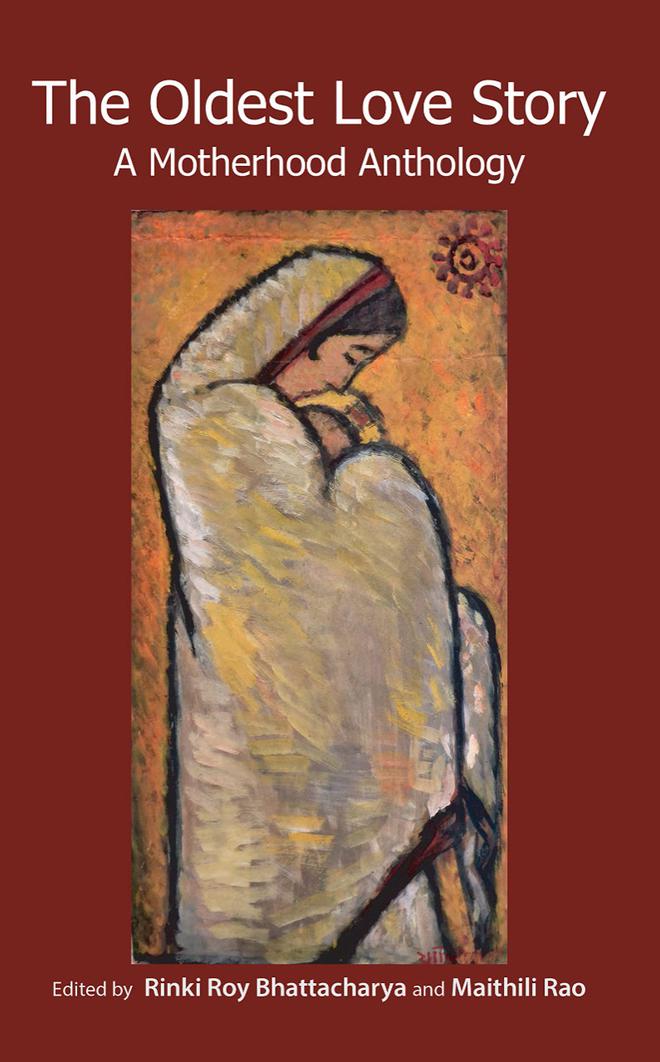“There are so many myths about motherhood that I think one purpose of it is to make women go through the suffering of pregnancy, childbirth and child rearing. We are made to feel superior as mothers, because we are treated inferior at so many other things in life,” said Shashi Deshpande, celebrated author and Sahitya Akademi awardee during a panel discussion on The Oldest Love Story – A Motherhood Anthology, which features her essay “Learning to be a Mother.”
The panel, moderated by writer and poet Rugmani Prabhakar, also boasted other writers such as Sudha Arora and Anuradha Gokarn along with the editors of the book, Rinki Roy Bhattacharya and Maithili Rao. The event was held at Bangalore Club on September 6, 2022.

The Oldest Love Story – A Motherhood Anthology brings together a roster of 25 highly distinguished writers, including five Sahitya Akademi winners, reflecting on the natural, yet deified, phenomenon of motherhood. This collection of essays “addresses motherhood through the prism of personal experiences,” parsing through layers of stereotypes, idealised notions and fantastical perceptions of all that motherhood is, and isn’t.
TOLS is almost a sequel of sorts to Janani, a book on mothers and daughters that Rinki had earlier published, and in which Maithili was a contributing writer. While the new project retained some of the earlier line-up, it expanded the ambit to bring in not only new writers, but also writers from other languages. Thus, TOLS includes essays by writers Vaidehi (Kannada), C S Lakshmi (Tamil), Mannu Bhandari (Hindi) and Roopa Barua (Assamese), among others. Actor Shabana Azmi and filmmaker Saeed Mirza have contributed, too.
“Everything came together so serendipitously. We reached out to so many of our friends and they were only too happy to write. However, we found that more people were writing about their parents, than about the process of mothering. We have fewer articles on being a mother and so many about their mothers,” Maithili said.
We all rebel against our mothers, wish to be unlike them, disown their wisdom, reject their ideologies and detach ourselves from their heritage and values. “But some part of her always lingers inside you, the emotional umbilical cord can never be completely cut off,” said Maithili. Therefore, writing about one’s mother becomes easier in retrospect than about oneself as a mother. “It requires enormous introspection and brutal honesty. I don’t know how many are capable of owning up to our faults as mothers,” she added.
In the opening essay, Shashi Deshpande writes about the burden of ‘specialness’ of motherhood. “We must accept the truth that mothers can be unreasonable and possessive, they can be cruel, neglectful and sadistic. Hating their children, battering them. Between this extreme and the other extreme of the ideal mother stretches a long line on which most of us stand. Nowhere on that line is there a point that marks the point of perfect motherhood. Motherhood is something that cannot be calibrated.”
In stark contrast is Anuradha Gokarn, who writes with loving warmth about her benevolent mother. She hopes to be able to write about being a mother, too. “I enjoyed the experience immensely. For all the discrimination and suffering women go through, I believe motherhood is a great compensation,” she said.
The stories in the book express love, gratitude and admiration towards mothers. There is anger, disappointment and anguish on behalf of the mothers. Some celebrate funny, spirited mothers, while others capture the struggle of being a single mother. One story offers closure to the daughter, another charts the social history of a community. And TOLS seeks to do all this with the gift of hindsight but without ever essentialising the idea of motherhood.







